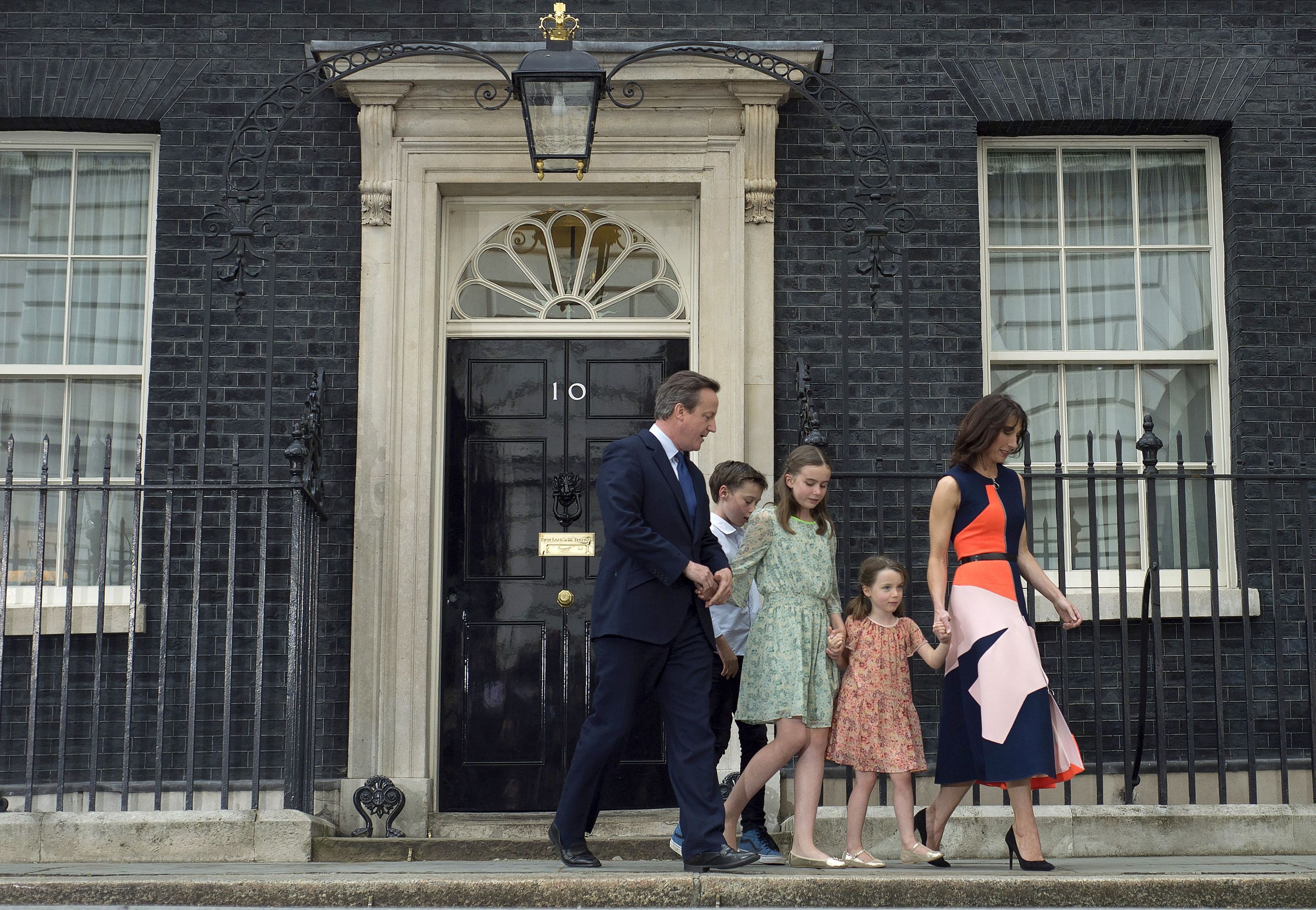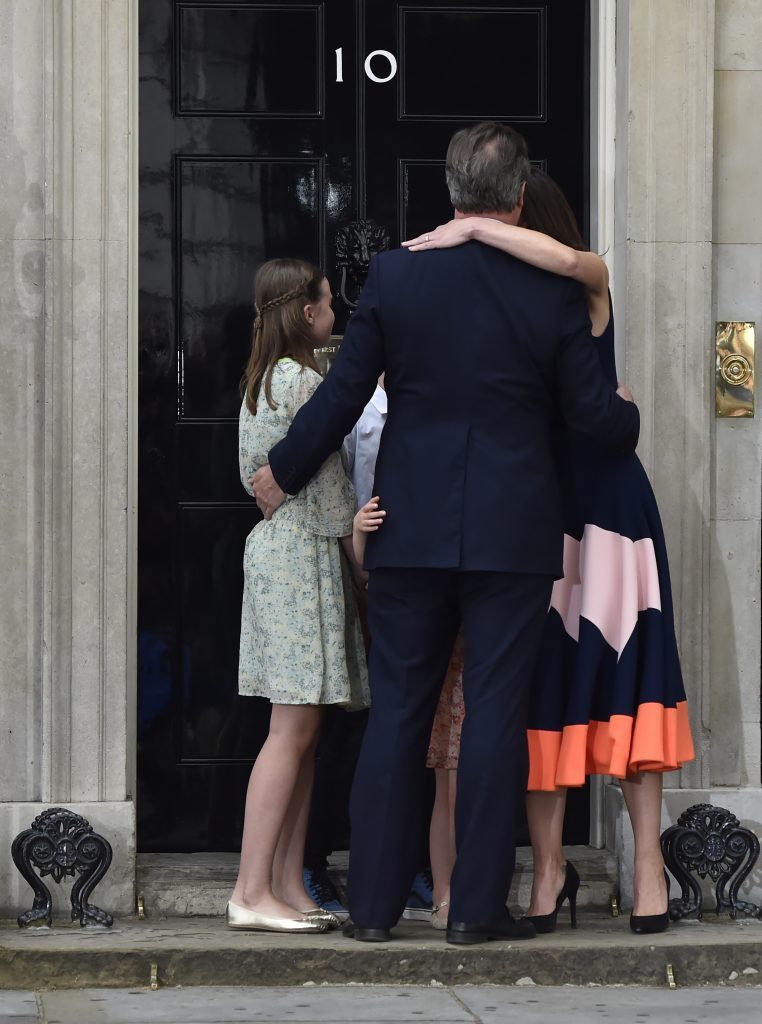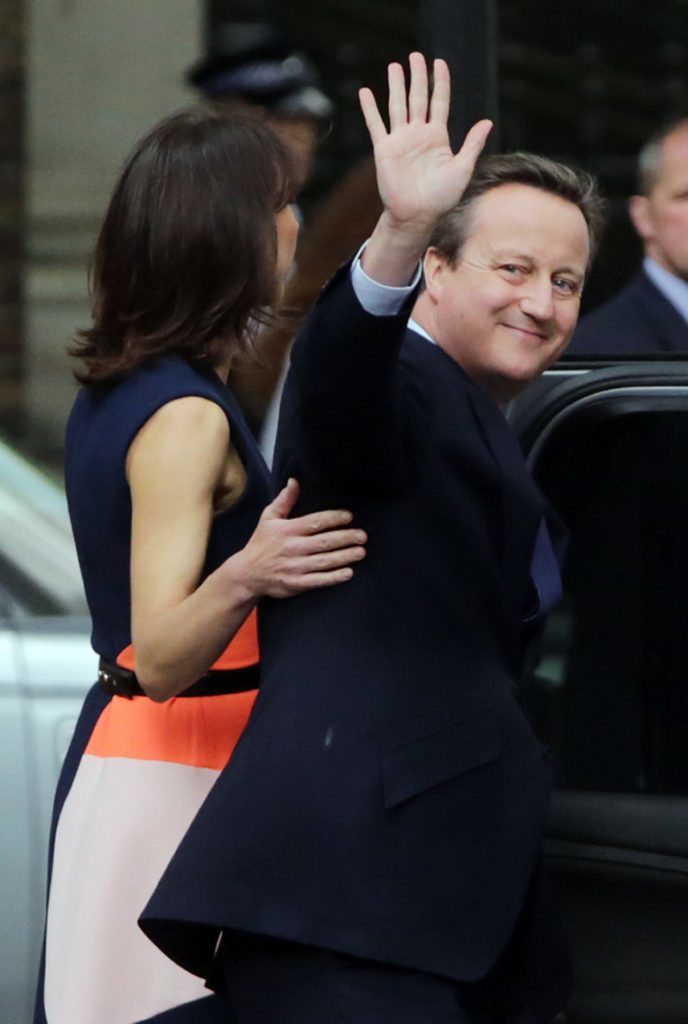David Cameron has left 10 Downing Street for the last time as Prime Minister, as he set off on the short trip to Buckingham Palace to tender his resignation to the Queen and hand over the reins of power to Theresa May.
Flanked by wife Samantha and children Nancy, Elwen and Florence outside the famous black door, Mr Cameron said that he believed he was leaving the country “much stronger” and the economy “immeasurably stronger” after his six years in office.
In a clear bid to define the legacy that he will leave behind him, he spoke of his pride at reducing the deficit, introducing gay marriage, increasing international aid spending and reducing NHS waiting lists.
And he paid tribute to Samantha, who he described as “the love of my life” who had “kept me vaguely sane”.
Mr Cameron said he was “delighted that for the second time in British history the new Prime Minister will be a woman, and once again a Conservative”.
And he said Mrs May would provide “strong and stable leadership in delivering the Conservative manifesto on which we were elected” and wished her well in negotiating the withdrawal from the EU which voters backed in last month’s referendum.
Mr Cameron concluded: “It has been the greatest honour of my life to serve our country as Prime Minister over these last six years and to serve as leader of my party over 11 years.
“And as we leave for the last time, my only wish is continued success for this great country that I love so very much.”
Mr Cameron’s audience with the Queen will be swiftly followed by the arrival at the Palace of Mrs May, who will be formally appointed the UK’s second female Prime Minister by “kissing hands” with the monarch.
His departure came just hours after his final session of Prime Minister’s Questions in the House of Commons, where he won a standing ovation from Conservative MPs after telling them: “I was the future once”.
And he won laughter by telling MPs: “Other than one meeting this afternoon with Her Majesty the Queen, my diary for the rest of the day is remarkably light.”
The Camerons walked together as a family towards the gates of Downing Street to cheers from staff.
As they went to get into an official limousine to depart for the Palace, Mr Cameron paused, looked back towards the serried ranks of the world’s press gathered outside Number 10 and gave a wave.
Only minutes later, they were entering Buckingham Palace, where Mr Cameron was due to leave his family for a private audience with the Queen which would make him, at 49, the youngest person to leave prime ministerial office for more than a century.
Mr Cameron set out a number of the things for which he hopes to be remembered – increasing employment, taking low-paid people out of income tax, introducing the National Living Wage, promoting adoption, improving school standards, encouraging volunteer work and commissioning modern defence equipment including submarines, warships and aircraft carriers.
He paid tribute to the “incredible work” of the armed forces, intelligence agencies and police, and said that those who lost their lives in service must never be forgotten.
“For me, politics has always been about public service in the national interest,” he said. “It is simple to say but often hard to do.
“But one of the things that sustains you in this job is the sense that, yes, our politics is full of argument and debate, and it can get quite heated, but no matter how difficult the decisions are, there is a great sense of British fair play, a quiet but prevailing sense that most people wish their Prime Minister well and want them to stick at it and get on with the job.
“So I want to take this moment to say thank you to all those who have written letters and emails offering me that support, people who I will never get to meet and never get to thank personally.”





